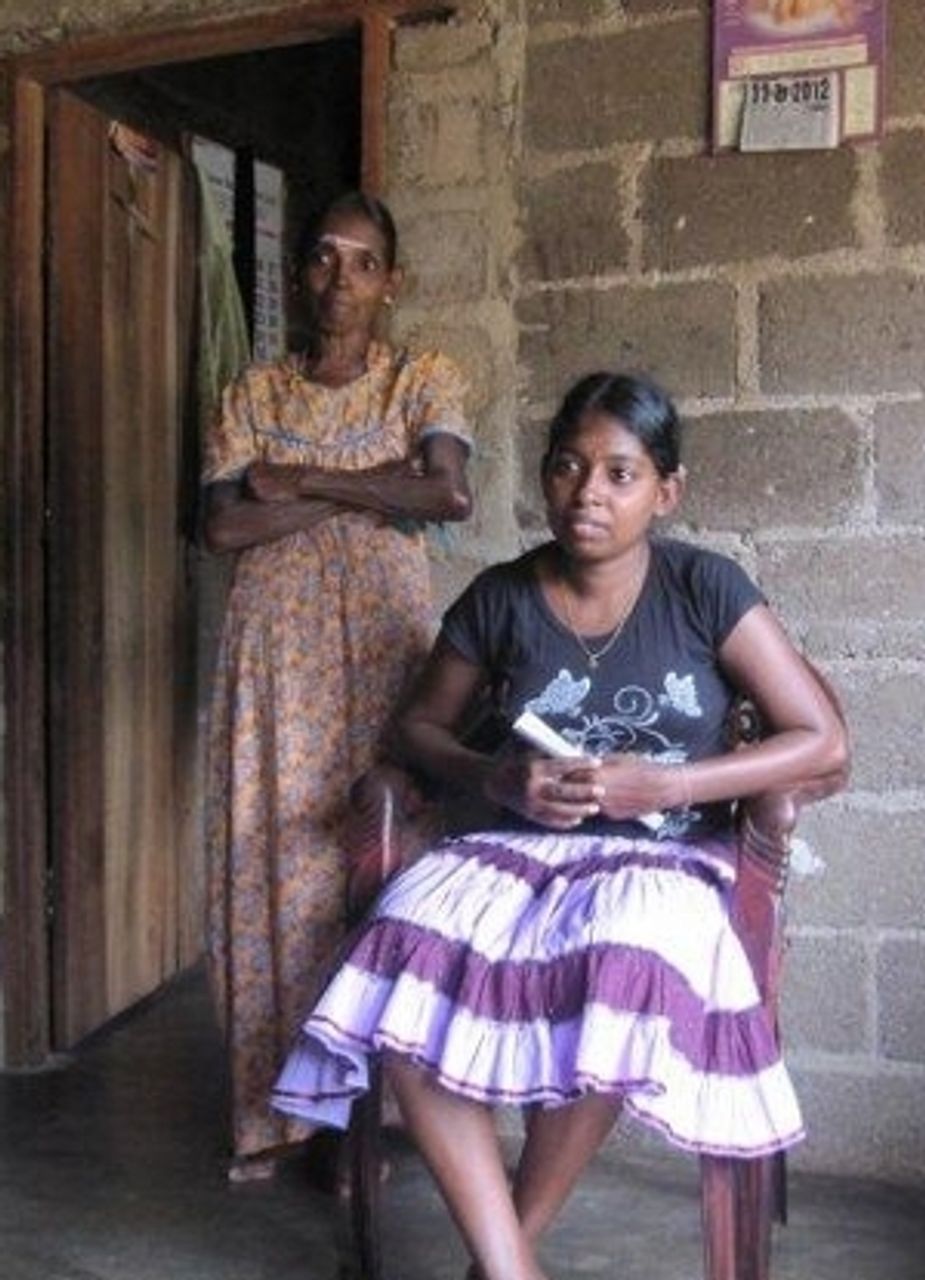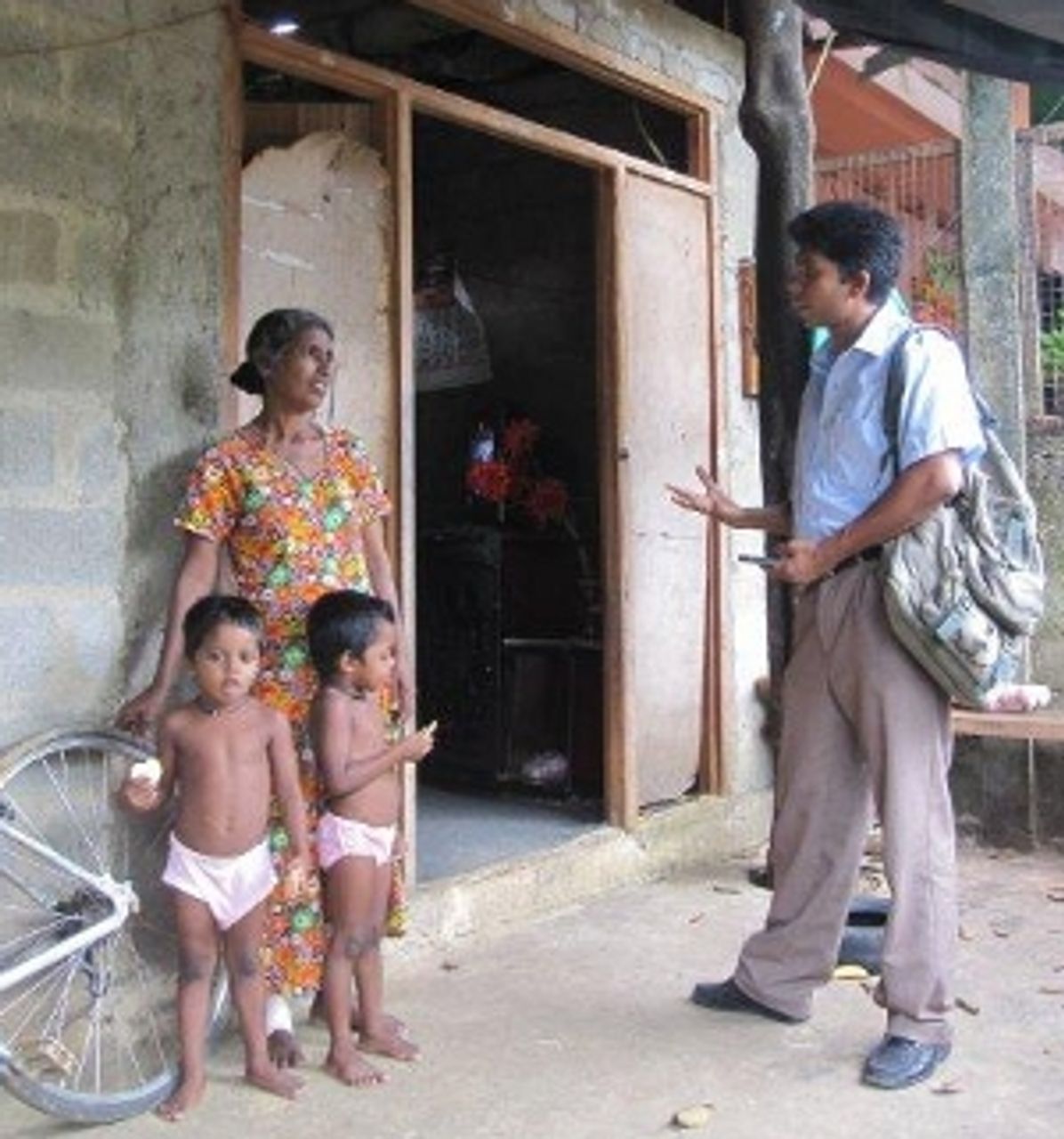Socialist Equality Party (SEP) members in Sri Lanka last weekend took the party’s provincial council election campaign to Yatiyanthota, in the Kegalla district of Sabaragamuwa Province. The SEP, which has a slate of 21 candidates, led by Political Committee member Ananda Daulagala, in the Kegalla district, is holding an election meeting in Yatiyanthota tomorrow afternoon.
SEP campaigners spoke to female workers who lost their jobs when the Ranmalu Fashions garment factory at Yatiyanthota closed down last November, retrenching about 1,000 employees without any compensation. Workers have not even received their entitlements from the Employees Provident Fund (EPF) pension scheme, to which they contributed.
A woman who had worked there for 19 years explained the oppressive conditions they had faced in the factory. “When we were recruited, the management told us we could not form any trade union. Management didn’t recruit any male workers, thinking that they made trouble. Finally, we were simply expelled from our jobs.”
 S.Maheshwari with her 64-year-old mother
S.Maheshwari with her 64-year-old motherShe condemned the attitude of the government’s Labour Department. “When we gathered to collect our last salary in December, after the closure of the factory, labour department officials told us not to worry. They said we would get compensation as well as the EPF. But after nearly a year, nothing has happened. The labour department is protecting the factory owners.”
S. Maheshwari, another retrenched Ranmalu worker, spoke about her poor living conditions. “I worked in the factory for 10 years. All I earned was just enough for my meagre daily meals. The monthly basic salary where I presently work is about 9,000 rupees [$US68]—less than Ranmalu. We are paying 1,500 rupees [a month] in house rent. How can we live, when prices of essentials are skyrocketing?”
 Padmawathie discussing the SEP's policies
Padmawathie discussing the SEP's policiesPadmawathie, a housewife, said her daughter faced unbearable hardships due to the loss of her job. “My daughter has three children, including twins. After she lost her job at Ranmalu, she worked at the Bratex factory in Awissawella [another local town] for a couple of months. But she had to abandon that job because she could not take leave from the factory, even when her children were indisposed. Now she works at a tea packing factory near Colombo.”
Menike, a local resident, expressed disgust with Maheepala Herath, the former chief minister of Sabaragamuwa Provincial Council, for allowing the factory to close down. Herath is the provincial leader of President Mahinda Rajapakse’s ruling United People’s Freedom Alliance. “After silently ignoring the disaster for months, Maheepala asks us to vote for him [in the upcoming elections]!” she commented.
Menike added: “We provided boarding places at our homes for the factory’s female workers. We earned a small income renting out rooms and providing food for workers. The company systematically reduced the workforce for two years, then closed the factory. Since December, all our income has been lost.” She now receives a small sum from the government’s welfare subsidy scheme.
The mother of a worker who had lost her job at Ranmalu Fashions described the oppressive conditions at her daughter’s new factory. Employees were required to work for 10 hours, from 7.30 in the morning to 5.30 in the evening. “Sometimes they have to work seven days of the week. Yet the total they are paid at the end of the month does not exceed 12,000 rupees [$US91].” She explained that her daughter’s salary was the only means of sustenance for a family of four.
The anger of the retrenched Ranmalu workers and their families sheds further light on why the Rajapakse government called the Provincial Councils elections one year early. It is attempting to exploit its control of state resources to win a victory in order to head off rising resistance to its austerity measures.
Ranmalu Fashions opened in 1992 as part of a program by the former United National Party (UNP) President R. Premadasa to establish 200 garment factories in rural areas. This scheme sought to exploit oppressed unemployed rural youth to supply cheaper labour for local and international investors. These investors received tax concessions and credit facilities, but workers were denied basic facilities. Subsequent governments, including Rajapakse’s, continued this program.
Ranmalu Fashions is just one of the dozens of Sri Lankan garment factories that have closed down amid the world economic crisis that has deepened since 2008. The experience of the Ranmalu workers is typical of the terrible plight being faced by workers throughout the island.
Compared to last year, the value of Sri Lankan garment exports dropped in the first four months of this year by 3.1 percent to $US3.3 billion. The declines in March and April, compared to last year, were 10 and 9 percent respectively. These figures were the worst since the 13 percent annual decline recorded in 2009 following the initial global financial breakdown.
SEP campaigners explained the global character of the worsening crisis, with the cheap labour Asian export industries, headed by those of China, facing contraction because of the slump in their American and European markets, where workers were being hit by wage and welfare cuts, and mass unemployment.
During 2011, the Sri Lankan garment export sector, the country’s second biggest foreign income earner, actually expanded, as a result of speed-up programs implemented by the major companies. The companies also benefited from new orders obtained due to protracted industrial action by garment workers in Bangladesh, another major garment exporting country in the Indian subcontinent.
However, the downward slide in the international market had since intensified the cut-throat competition between garment-producing countries. A recently published article in the Daily Mirror noted: “there could be a drop in the buying power due to low sales in Europe.”
While drawing attention to the upsurge of workers’ struggles internationally, SEP members explained the need to resolve the crisis of working class leadership and the perspective needed to answer the assault on jobs, living conditions and welfare programs. They discussed the necessity for a socialist program and the fight for a workers’ and peasants’ government, as part of an international struggle for socialism.
Workers expressed considerable interest in attending the SEP’s public meeting in Yatiyanthota, on August 19 at 3 p.m. in the Parapitiya Hall, to hear more about the party’s program.
Subscribe to the IWA-RFC Newsletter
Get email updates on workers’ struggles and a global perspective from the International Workers Alliance of Rank-and-File Committees.
